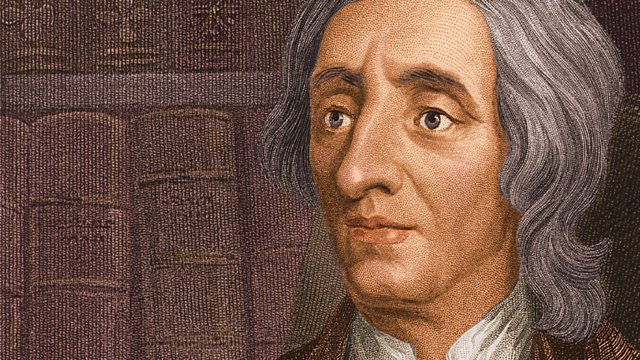Empiricism
Melvyn Bragg discusses the development of the idea formulated by John Locke that all knowledge arises from experience, and looks at its effect on the Enlightenment and the Industrial Revolution.
Melvyn Bragg and guests discuss Empiricism, Englandβs greatest contribution to philosophy. At the end of the seventeenth century the philosopher John Locke wrote in his Essay Concerning Human Understanding: βAll ideas come from sensation or reflection. Let us then suppose the mind to be, as we say, white paper, void of all characters, without any ideas:- How comes it to be furnished? Whence comes it by that vast store which the busy and boundless fancy of man has painted on it with an almost endless variety? Whence has it all the materials of reason and knowledge? To this I answer, in one word, from EXPERIENCE.βIt was a body of ideas that for Voltaire, and for Kant after him, defined the English attitude to thought; a straight talking pragmatic philosophy that was hand in glove with a practical people.How was the philosophy of empiricism developed in the seventeenth and eighteenth centuries? And what effect did this emphasis on experience have on culture and literature in Britain?With Judith Hawley, Senior Lecturer in English at Royal Holloway, University of London; Murray Pittock, Professor of Scottish and Romantic Literature at the University of Manchester; Jonathan RΓ©e, philosopher and author of Philosophy and its Past.
Last on
Broadcasts
- Thu 10 Jun 2004 09:00ΒιΆΉΤΌΕΔ Radio 4
- Thu 10 Jun 2004 21:30ΒιΆΉΤΌΕΔ Radio 4
Featured in...
![]()
Enlightenment—In Our Time
Browse the Enlightenment era within the In Our Time archive.
![]()
18th Century—In Our Time
Browse the 18th Century era within the In Our Time archive.
![]()
17th Century—In Our Time
Browse the 17th Century era within the In Our Time archive.
![]()
Philosophy—In Our Time
From Altruism to Wittgenstein, philosophers, theories and key themes.
In Our Time podcasts
Download programmes from the huge In Our Time archive.
The In Our Time Listeners' Top 10
If youβre new to In Our Time, this is a good place to start.
Arts and Ideas podcast
Download the best of Radio 3's Free Thinking programme.
Podcast
-
![]()
In Our Time
Melvyn Bragg and guests discuss the ideas, people and events that have shaped our world.



